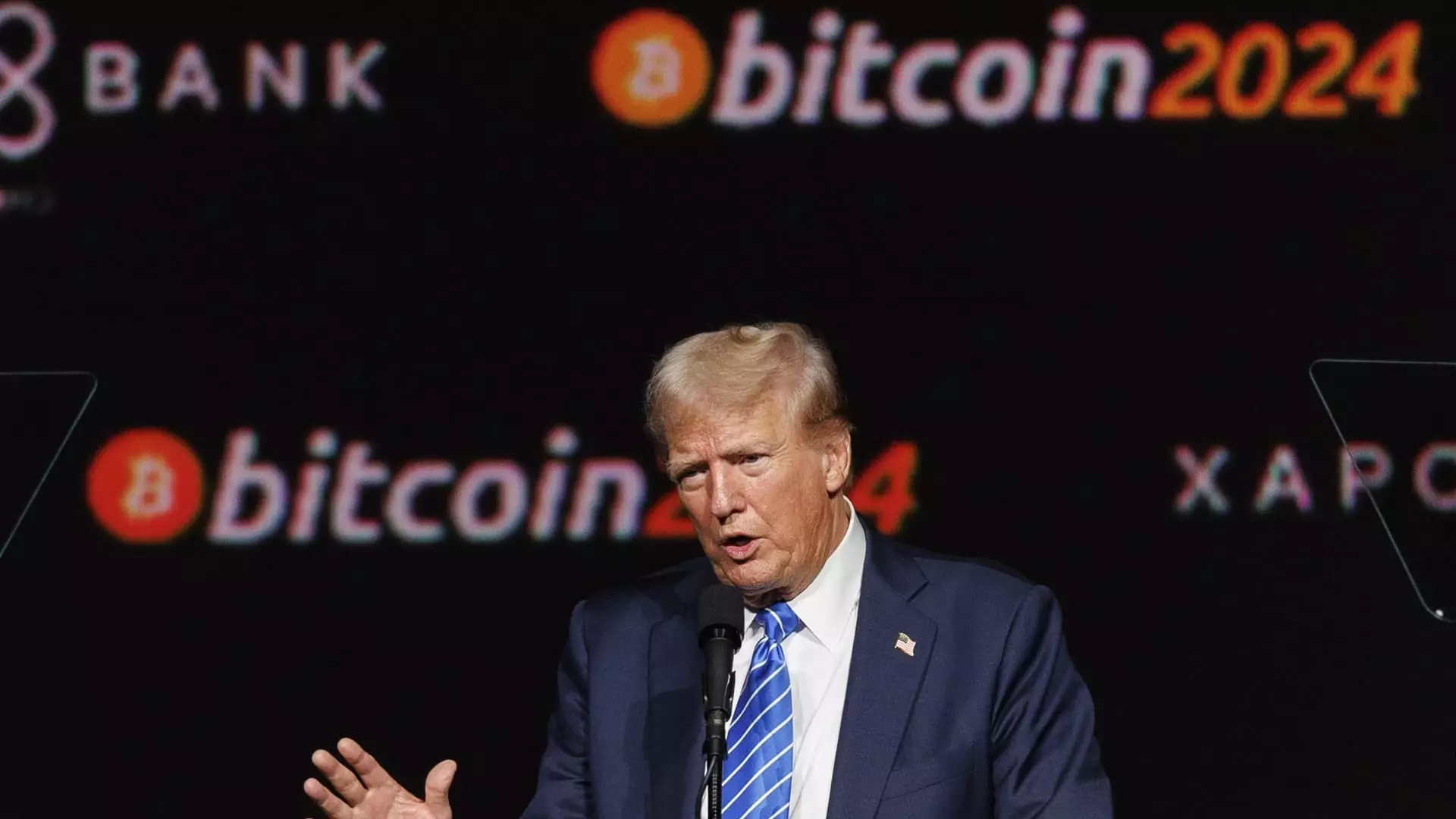As the cryptocurrency market evolves, it often finds itself entwined with global political dynamics, especially in significant political events like the upcoming U.S. presidential elections. However, opinions within the cryptocurrency community suggest that the impact of these elections on the global market, particularly in crypto hubs like Singapore, may be overstated. Industry leaders argue that regardless of the outcomes, the trajectory toward a decentralized financial future remains largely unaffected by the U.S. political climate.
Charles Hoskinson, co-founder of the Ethereum blockchain, embodies this sentiment by asserting that while former President Donald Trump is perceived as more aligned with crypto interests than Vice President Kamala Harris, the fundamental transformations within the industry are beyond any political influence. This stance is echoed across many crypto circles, suggesting that advancements in regulatory frameworks—both in the U.S. and abroad—will continue to shape the market.
The discourse around cryptocurrency regulation is evolving swiftly. Insiders claim that the cryptocurrency space is not an isolated phenomenon that pivots around U.S. presidential power. Regulatory progress is being made globally, marking significant movements from the European Union to countries like Singapore. The creation of robust regulatory frameworks signals a commitment to innovation, advancing a landscape where crypto thrives irrespective of U.S. political maneuvers.
Anthony Scaramucci, a prominent figure in the financial landscape and founder of SkyBridge Capital, adds an interesting perspective. He believes that, irrespective of who secures the presidency, the underlying approach to crypto regulation will remain consistent. Scaramucci’s optimism stems from a belief that both political parties recognize the importance of integrating cryptocurrencies into the economic fabric of the nation, indicating possible bipartisan support in future legislative developments.
Despite the perceived alignment of Trump with cryptocurrency interests, uncertainties surrounding his political intentions loom large. Scaramucci suggests that Trump’s unpredictability complicates the landscape, making it hard to forecast how he would govern crypto policies should he win another term. Such unpredictability introduces volatility, a characteristic that resonates with the very nature of the cryptocurrency markets themselves, known for their rapid fluctuations and shifts in sentiment.
Moreover, new ventures in the cryptocurrency space, such as the Trump family’s recent project, World Liberty Financial, which aims to establish a crypto banking platform, showcase the increasing intertwining of political figures with the cryptocurrency narrative. However, many industry insiders remain skeptical about these initiatives affecting market fundamentals in any substantial manner.
Financial engagement from cryptocurrency advocates in the political arena is also notable, with more than $190 million contributed to various candidates and PACs ahead of the elections. This financial backing appears more balanced than in previous cycles, yet Republican candidates have seen a bulk of support. This trend hints at strategic alliances forming within the political framework, where crypto advocates are actively seeking to influence favorable legislation.
Nonetheless, some powerful voices in the crypto world, like Arthur Hayes, former CEO of BitMEX, assert that these political gestures may be futile. Hayes argues that Bitcoin’s significant value ascent occurred in the absence of any comprehensive regulatory framework. His contention is that the cryptocurrency market established itself in a climate of uncertainty; thus, it can continue flourishing irrespective of political currents.
As the U.S. presidential election approaches, the sentiments within the cryptocurrency sector signal a collective resolute direction towards decentralization and innovation. Leaders argue that while U.S. politics may introduce temporary turbulence, the overarching trend is steering towards a landscape where cryptocurrencies are not only accepted but also embedded within the economic frameworks globally.
The consensus reflects a belief that the technology underpinning cryptocurrencies has risen independently of political endorsements. As the global market continues to respond to advancing blockchain technologies and evolving user bases, the potential for a decentralized and democratized financial system appears timeless, unyielding to the vagaries of politics, and ever-prepared to expand and innovate.

Leave a Reply